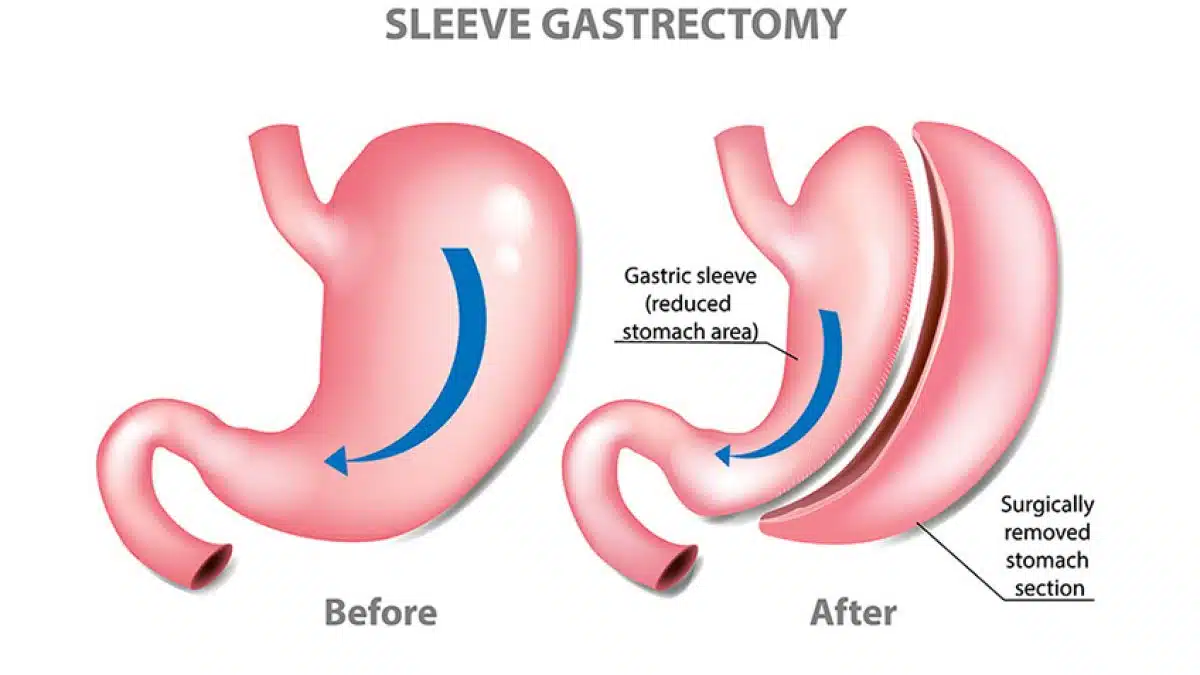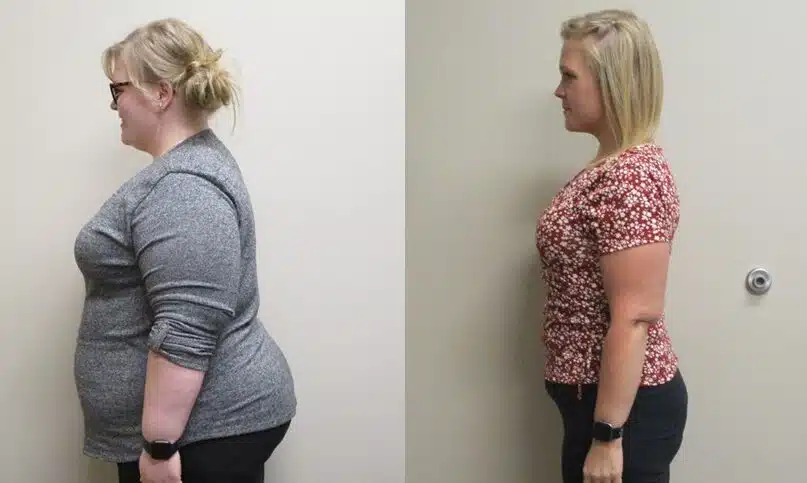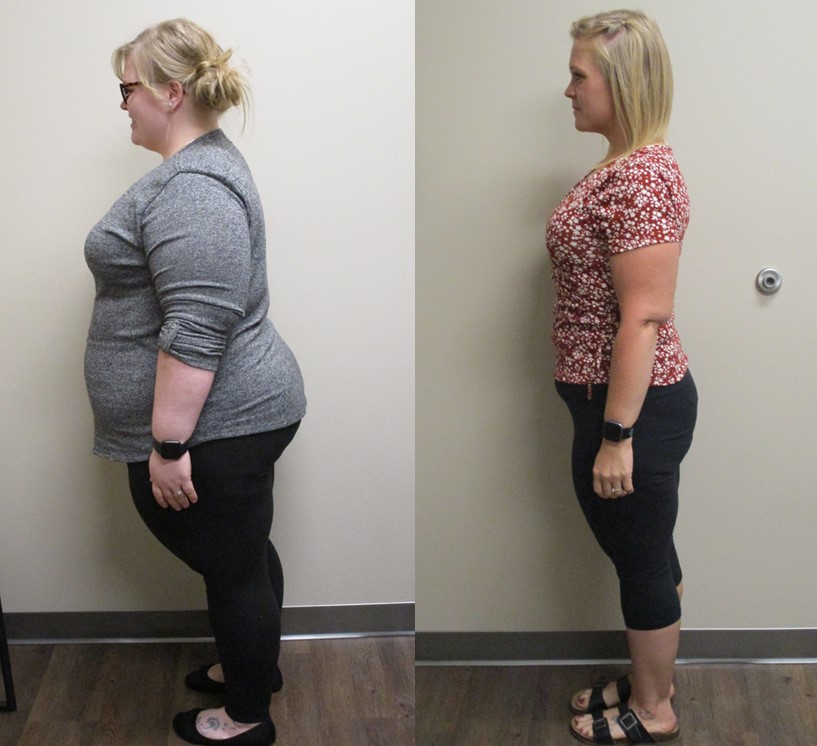Table of Contents

The Ultimate Guide toGastric Sleeve in Turkey : What You Need to Know About Cost, Safety & Results
Vision problems affect millions worldwide, with glasses and contact lenses being the go-to solutions for most people. However, laser eye surgery has revolutionized vision correction by providing a permanent, effective, and safe alternative.
One country leading the way in affordable and high-quality laser eye surgery is Turkey. Thousands of patients from around the world, especially from Europe, the UK, the USA, and the Middle East, travel to Turkey each year for this procedure. But what makes laser eye surgery in Turkey such a popular choice?
By the end of this guide, you’ll have all the information needed to make an informed decision about whether Turkey is the right destination for your laser eye surgery.
Time in Turkey
7 to 14 days
Surgery Time
2 to 5 hours
Hospital Stay
1 to 3 days
Recovery
2 to 6 weeks
Accomodation
4/5* Hotels
Transportation
Private Driver
Types of Gastric Sleeve in Turkey
While the standard sleeve gastrectomy is the most common, variations exist depending on a patient’s condition:
Type | Description |
Standard Gastric Sleeve | The typical procedure involving 75-80% stomach removal |
Endoscopic Sleeve Gastroplasty (ESG) | A non-surgical option using an endoscope to stitch the stomach smaller |
Modified Gastric Sleeve | Customized for patients with previous surgeries or complex health histories |
Your surgeon will help you decide the best option based on your goals and medical background.
How Is the Gastric Sleeve Procedure Done in Turkey?
Gastric sleeve surgery—also known as sleeve gastrectomy—is one of the most popular and effective weight loss surgeries performed in Turkey. It’s a minimally invasive procedure that reduces the size of the stomach, helping patients eat less and feel full faster. In Turkey, the procedure is carried out in modern, accredited hospitals by experienced bariatric surgeons, offering excellent outcomes at affordable prices.
Here’s a detailed breakdown of how the gastric sleeve procedure is done in Turkey:
Step 1: Pre-Operative Evaluation
Before the surgery, you’ll undergo a full medical evaluation to ensure you’re a good candidate for the procedure. This includes:
■ Blood tests
■ ECG (electrocardiogram)
■ Chest X-ray
■ Abdominal ultrasound
■ Consultation with a surgeon, anesthesiologist, and sometimes a psychologist
This thorough check-up is typically done a day before the surgery in the hospital or clinic.
Step 2: Admission and Preparation
■ You’ll be admitted to the hospital a few hours before the surgery
■ You’ll meet your surgical team and anesthesiologist
■ You’ll be asked to fast (no food or drink) for at least 8 hours before the procedure
■ An IV line will be inserted to administer fluids and medications
Step 3: General Anesthesia
The gastric sleeve is performed under general anesthesia, meaning you’ll be fully asleep and pain-free throughout the procedure. An anesthesiologist monitors your vital signs continuously to ensure safety.
Step 4: Laparoscopic Surgery (Minimally Invasive)
The surgeon performs the procedure using laparoscopy, a minimally invasive technique that involves:
■ Making 4 to 5 small incisions in the abdomen
■ Inserting a tiny camera and specialized surgical tools
■ Removing approximately 75–80% of the stomach, leaving a narrow “sleeve” or tube-shaped stomach
The remaining stomach is closed with surgical staples and checked for leaks.
Step 5: Post-Operative Monitoring and Recovery in Hospital
After surgery:
■ You’ll be transferred to a recovery room for close monitoring
■ Most patients stay in the hospital for 2 to 3 nights
■ You’ll begin sipping small amounts of water within 24 hours
■ Nurses and doctors will monitor pain, healing, and hydration
Step 6: Dietary Progression and Aftercare
Before being discharged:
■ A nutritionist will explain your new diet plan
■ You’ll start with a clear liquid diet, gradually moving to pureed foods, soft foods, and eventually solids over several weeks
■ You’ll be given medications to reduce acid and prevent blood clots
■ You’ll receive a follow-up schedule and 24/7 post-op support
Most Turkish clinics offer lifetime online follow-up to monitor your weight loss progress and answer questions.
Why is Turkey a Popular Destination for Gastric Sleeve?
Turkey has emerged as a top location for medical tourism, especially for bariatric procedures like the gastric sleeve. Here’s why:
About the Surgeon’s Experience
- 1. How many strabismus surgeries have you performed?
- 2. What is your success rate with this procedure?
- 3. Do you specialize in strabismus surgery or other eye conditions as well?
- 4. Can I see before-and-after case studies from past patients?
About the Procedure
- 1. What surgical technique will be used for my case?
- 2. How long does the surgery take?
- 3. Will I need local or general anesthesia?
- 4. What should I do to prepare for the surgery?
About Risks and Expectations
- 1. What are the potential risks and complications of this surgery?
- 2. How long will it take to see the full results?
- 3. Will I need additional surgeries in the future?
- 4. What are the chances of the condition recurring after surgery?
About Post-Surgery Care
- 1. How long is the recovery period?
- 2. What kind of follow-up appointments will be necessary?
- 3.bWill I need vision therapy or exercises after surgery?
- 4. When can I resume normal activities like work, exercise, or driving?
About Pricing and Insurance
- 1. What is the total cost of the procedure, including aftercare?
- 2. Are there any hidden fees I should be aware of?
- 3. Does my insurance cover strabismus surgery?
- 4. Do you offer payment plans or financing options?
Turkey’s medical sector is known for combining professionalism with hospitality.
Befor & After Gastric Sleeve in Turkey




Gastric Sleeve Cost in Turkey vs. Other Countries
Gastric sleeve surgery, also known as sleeve gastrectomy, has become a popular weight-loss surgery for individuals struggling with obesity. This procedure involves removing a portion of the stomach to reduce its size and help patients lose weight. Turkey has become a popular destination for gastric sleeve surgeries due to its high-quality healthcare services and significantly lower costs compared to many Western countries. The gastric Sleeve surgery cost in Turkey is much more affordable, with pricesLet’s break down the costs:
Country | Average Cost (USD) | Includes Stay/Transport? |
USA | $18,000 – $25,000 | ❌ |
UK | $10,000 – $15,000 | ❌ |
Canada | $16,000 – $20,000 | ❌ |
Turkey | $3,000 – $5,500 | ✅ (Often all-inclusive) |
As you can see, gastric sleeve surgery cost in Turkey is significantly more affordable, with no compromise on safety or care.
Choosing the Right Clinic and Surgeon
The success of your surgery largely depends on your provider. Here’s what to look for:
Reputation and Reviews
Look for clinics with positive patient reviews and a strong reputation for successful strabismus surgeries. Testimonials and before-and-after case studies can provide insight into patient satisfaction and outcomes.
Surgeon’s Qualifications and Experience
Ensure your surgeon is board-certified and has extensive experience in performing strabismus surgery. A specialist with a proven track record increases the likelihood of a successful procedure.
Technology and Equipment Used
Advanced technology, such as 3D imaging and minimally invasive techniques, enhances precision and improves surgical outcomes. Choose a clinic that stays up to date with the latest medical advancements.
Accreditation and Certification
Select a clinic that meets international medical standards and holds certifications from recognized healthcare authorities. Accreditation ensures high-quality care and patient safety.
Pre-Surgery Consultation and Eye Examination
A thorough pre-surgical evaluation, including vision tests and eye alignment assessments, is essential. The clinic should provide a detailed consultation to explain the procedure, risks, and expected outcomes.
Post-Surgery Care and Follow-Ups
Effective aftercare, including scheduled follow-ups and rehabilitation programs, is crucial for recovery and long-term success. Ensure the clinic offers ongoing support to monitor progress and address any complications.
Pricing and Transparency
The clinic should provide clear, upfront pricing without hidden fees. A detailed cost breakdown, including consultation, surgery, and aftercare, helps patients make informed decisions.
Questions to Ask Your Surgeon Before the Procedure
- 1. How many gastric sleeve surgeries have you performed?
- 2. What’s your complication rate?
- 3. Can I speak with past patients?
- 4. What support do you offer post-surgery?
- Will I have access to a dietitian?
These questions help build trust and confidence.
How to Book a Gastric Sleeve in Turkey
Booking a gastric sleeve surgery in Turkey is a smooth, professional, and highly organized process. Thanks to Turkey’s reputation for high-quality medical care and affordability, thousands of international patients travel each year for weight-loss surgery. Below is a step-by-step guide to help you confidently book your gastric sleeve (sleeve gastrectomy) procedure in Turkey.
Step 1: Research Trusted Clinics and Surgeons
Start by identifying well-known bariatric clinics and hospitals in cities like Istanbul, Izmir, Ankara, or Antalya. Look for:
■ Board-certified bariatric surgeons with years of experience
■ Hospitals with international accreditations like JCI (Joint Commission International)
■ Verified patient reviews and before/after success stories
■ Clinics that offer all-inclusive medical tourism packages
■ Transparent information about procedures, safety, and results
You can find reviews on Google, Trustpilot, RealSelf, or dedicated medical tourism websites.
Step 2: Schedule a Free Online Consultation
Most clinics offer free virtual consultations to assess your eligibility for gastric sleeve surgery.
During the consultation, you’ll be asked to provide:
■ Your BMI, current weight, and health history
■ Details about any medications or chronic conditions
■ Information about previous surgeries or treatments
The surgeon or medical advisor will explain the procedure, risks, expected outcomes, and answer all your questions.
Step 3: Receive Your Treatment Plan and Price Quote
After evaluating your medical data, the clinic will send:
■ A personalized treatment plan with medical details
■ A fixed-price, all-inclusive package covering:
■ Gastric sleeve surgery
■ Surgeon and hospital fees
■ Pre-op tests (bloodwork, ECG, ultrasound)
■ 2–4 nights in hospital + hotel stay
■ Medications and post-op care
■ Airport transfers and patient coordinator
■ Translator (if needed)
Compare a few offers before confirming.
Step 4: Confirm Booking and Prepare for Travel
Once you choose your clinic:
■ Select a surgery date that suits your travel plans
■ Pay a deposit if required (many clinics allow full payment upon arrival)
■ Send your passport copy for hotel and transfer bookings
■ Receive detailed pre-operative instructions and travel tips
Some clinics offer help with visa applications if required for your country.
Step 5: Travel to Turkey and Undergo Surgery
Upon arrival in Turkey:
■ A clinic representative will meet you at the airport
■ You’ll check into your hotel or hospital
■ On Day 1, you’ll undergo pre-op tests and meet your surgeon in person
■ Surgery is usually performed on Day 2, using laparoscopic (minimally invasive) methods
You’ll stay in the hospital for 2–3 days, with full monitoring and support from the medical team.
Step 6: Post-Surgery Recovery and Return Home
■ After discharge, you may stay in a hotel for 1–2 more days
■ You’ll receive a diet plan and supplement guide from a bariatric nutritionist
■ Most patients are cleared to fly home within 5–7 days
■ Clinics offer lifetime support via online follow-ups and progress tracking
🌍 Why Book Your Gastric Sleeve in Turkey?
■ Experienced surgeons and high surgical success rates
■ Modern hospitals with international safety standards
■ Up to 70% savings compared to prices in the UK, US, or Europe
■ All-inclusive care with English-speaking staff
■ Fast scheduling and no long waitlists
Benefits of Gastric Sleeve
Gastric sleeve surgery can be life-changing. Here are some of the most notable benefits:
- 1. Improved Eye Alignment
Strabismus surgery corrects misaligned eyes, allowing them to move and function together. This results in a more natural and symmetrical eye position. - 2. Enhanced Vision and Depth Perception
In many cases, surgery improves binocular vision, helping both eyes work together. This enhances depth perception and spatial awareness, making daily activities like driving, reading, and playing sports easier. - 3. Reduction or Elimination of Double Vision
For patients experiencing double vision (diplopia), surgery can help align the eyes properly, reducing or eliminating this condition. - 4. Increased Confidence and Better Social Interactions
Correcting eye misalignment can improve self-esteem and social interactions, as people often feel more confident making eye contact. This can positively impact personal relationships and professional opportunities. - 5. Improved Eye Comfort
Strabismus can cause eye strain, discomfort, and frequent headaches due to the extra effort required to focus. Surgery helps align the eyes properly, reducing these issues. - 6. Expanded Field of Vision
Some cases of strabismus cause a limited field of vision. Surgery can help widen the visual field, making daily tasks easier and safer. - 7. Better Career and Educational Opportunities
Some professions and academic tasks require strong visual coordination. Correcting strabismus can improve performance in jobs that require precise visual skills, such as aviation, law enforcement, and sports. - 8. Long-Term Stability and Lasting Results
For many patients, strabismus surgery provides lasting improvements. Although some cases may require additional procedures or therapy, most patients experience stable, long-term benefits. - 9. Improved Head and Neck Posture
Many people with strabismus develop abnormal head tilts or postures to compensate for their misalignment. Surgery can help restore natural head positioning and prevent related neck or back pain. - 10. Positive Impact on Mental Well-being
Living with strabismus can be emotionally challenging, especially for children and adults facing social stigma. Corrective surgery can greatly improve emotional well-being, reducing anxiety and boosting self-image.
Discussing these benefits with a specialist can help determine if strabismus surgery is the right choice for you.
Risks and Potential Side Effects
Like any surgical procedure, gastric sleeve carries risks. Understanding them helps patients make informed choices:
Potential Surgical Risks:
- 1. Infection: Although rare, any surgery carries the risk of infection. Proper post-operative care and antibiotics can help prevent this.
- 2. Bleeding: Minor bleeding is common, but excessive bleeding is a rare complication.
- 3. Adverse Reaction to Anesthesia: Some patients may experience nausea, dizziness, or an allergic reaction to anesthesia.
Specific Risks of Strabismus Surgery:
- 1. Overcorrection or Undercorrection: The eyes may not align perfectly after surgery, sometimes requiring additional procedures.
- 2. Double Vision: Some patients experience temporary or, in rare cases, persistent double vision after surgery.
- 3. Scarring of Eye Muscles: Scar tissue may affect eye movement, potentially requiring further treatment.
- Loss of Vision: Extremely rare but possible if complications arise.
Long-Term Considerations:
- 1. Recurrence of Strabismus: In some cases, the misalignment can return over time, requiring additional surgery or vision therapy.
- 2. Need for Additional Treatment: Some patients may need eye exercises, prism glasses, or further surgeries for optimal results.
- 3. Changes in Eye Movement: Some individuals may notice a slight restriction in eye movement after surgery.
Discussing these risks with your surgeon can help you understand the likelihood of complications and how they are managed.
Is Gastric Sleeve Safe?
Yes, gastric sleeve surgery is considered a safe and effective procedure when performed by a qualified and experienced surgeon. Over the past decade, advancements in surgical techniques and improved post-operative care have significantly increased its safety. However, like any medical procedure, there are potential risks and factors that affect patient outcomes.
1. Safety Compared to Other Weight-Loss Surgeries
Gastric sleeve surgery has a lower complication rate compared to more complex bariatric procedures like gastric bypass. Since it does not involve rerouting the intestines, the risks of malabsorption and nutritional deficiencies are lower.
2. Low Complication and Mortality Rates
- Studies show that the risk of major complications is less than 5%.
- The mortality rate for gastric sleeve surgery is very low (about 0.1%), making it safer than common surgeries like gallbladder removal.
3. Factors That Affect Safety
Several factors contribute to the safety and success of the procedure:
- Surgeon’s Experience: Choosing a highly skilled and board-certified bariatric surgeon reduces the risk of complications.
- Pre-Surgical Preparation: Patients who follow a pre-op diet and undergo thorough medical evaluations have safer outcomes.
- Post-Surgery Care: Following medical guidelines for diet, hydration, and activity helps ensure a smooth recovery.
4. Potential Short-Term Risks
While rare, some complications can occur after surgery:
- Bleeding – Minimal in most cases but may require medical attention if severe.
- Infection – Proper post-operative care minimizes this risk.
- Staple Line Leakage – One of the most serious risks, but rare with an experienced surgeon.
5. Long-Term Safety Considerations
- Nutrient Deficiencies – Since the stomach size is reduced, patients must take vitamins to prevent deficiencies.
- Gastroesophageal Reflux (GERD) – Some patients may experience acid reflux after surgery, which can be managed with medication or diet changes.
- Weight Regain – Without lifestyle changes, some patients may regain weight over time.
6. How to Ensure a Safe Surgery and Recovery
To maximize safety and long-term success, patients should:
- Choose a reputable clinic and experienced surgeon.
- Follow the pre-op and post-op guidelines strictly.
- Attend regular follow-up appointments to monitor progress.
- Adopt healthy eating habits and an active lifestyle to maintain weight loss.
Pre-Surgery Preparations
Proper preparation before gastric sleeve surgery is crucial for a safe procedure and successful recovery. Patients must follow specific guidelines to ensure their body is in the best possible condition for surgery and to reduce potential complications. Below are the key steps involved in preparing for gastric sleeve surgery.
1. Medical Evaluations and Tests
Before surgery, your medical team will perform a series of tests to assess your overall health and suitability for the procedure. These may include:
- 1. Blood Tests: To check for any deficiencies, infections, or conditions like diabetes.
- 2. Electrocardiogram (EKG): To evaluate heart health, especially for patients with a history of cardiovascular issues.
- 3. Imaging Tests (Ultrasound or X-rays): To examine the liver, stomach, and digestive system.
- 4. Endoscopy (if needed): To check for ulcers or other stomach conditions that may affect surgery.
2. Psychological Assessment
Many clinics require a mental health evaluation before approving surgery. This helps determine whether the patient is mentally and emotionally prepared for the lifestyle changes required after surgery. The assessment may include:
- 1. Identifying emotional eating habits that need to be addressed.
- 2. Evaluating stress management techniques and mental readiness.
- 3. Discussing expectations and setting realistic weight-loss goals.
3. Nutritional Counseling
Patients will work with a dietitian to learn about post-surgery dietary changes. This includes:
- 1. Adjusting eating habits before surgery to aid recovery.
- 2. Understanding portion control and how to eat smaller, nutrient-dense meals.
- 3. Learning which foods to avoid, such as processed and high-sugar foods.
4. Pre-Op Diet (2 Weeks Before Surgery)
A strict pre-op diet is typically required for 10–14 days before surgery. The main goal is to shrink the liver, making the surgery safer and easier. Typical Pre-Op Diet Includes:
- 1. High-protein, low-carb shakes and soft foods.
- 2.Lean meats, fish, and non-starchy vegetables.
- 3. Plenty of water (at least 2 liters per day).
- 4. Avoiding sugary drinks, alcohol, and fatty foods.
5. Stopping Certain Medications
Your doctor will review your medications and may ask you to stop taking certain ones before surgery:
- 1. Blood Thinners (Aspirin, Warfarin): To reduce bleeding risks.
- 2. Anti-inflammatory Medications (NSAIDs): These can affect healing.
- 3. Diabetes Medications: Adjustments may be needed based on blood sugar levels.
Always consult with your healthcare provider before stopping any medication.
6. Stop Smoking and Alcohol Consumption
Smoking increases the risk of complications such as poor healing, infections, and blood clots. Patients should quit smoking at least 4 weeks before surgery.
Alcohol should also be avoided as it can cause dehydration and affect liver function.
7. Prepare for the Recovery Period
Since recovery requires dietary changes and limited physical activity, it’s important to plan ahead:
- 1. Stock up on post-op foods (protein shakes, soups, and pureed foods).
- 2. Arrange for help at home for at least a few days after surgery.
- 3. Take time off work (usually 1–2 weeks of rest is needed).
- 4. Prepare mentally for the lifestyle changes that come with weight loss surgery.
8. Day Before Surgery
- 1. Follow your doctor’s fasting instructions (typically no food or drinks after midnight).
- 2. Pack essentials for the hospital stay (comfortable clothes, personal hygiene items).
- 3. Get a good night’s sleep to ensure you are well-rested for the procedure.
What to Expect on the Day of Surgery
Here’s a brief walkthrough of what your surgery day will look like:
- 1. Arrival at the Clinic: Check-in, vitals, and final consultations.
- 2. Anesthesia: You’ll be placed under general anesthesia.
- 3. The Procedure: Takes 60 to 90 minutes using laparoscopic (keyhole) methods.
- 4. Recovery Room: You’ll wake up under observation with minimal discomfort.
- 5. Hospital Stay: Most patients stay 2–3 days before discharge.
The process is smooth and well-organized, especially in Turkey’s leading clinics.
Post-Surgery Recovery and Care
Recovering from gastric sleeve surgery requires careful attention to diet, activity levels, and medical follow-ups to ensure a smooth healing process and long-term success. While most patients experience significant improvements in their health and weight, proper post-surgery care is essential to minimize complications and maximize results.
1. Immediate Post-Surgery Recovery (Hospital Stay: 2–3 Days)
After the procedure, patients are closely monitored in the hospital for pain management, hydration, and early mobility.
What to Expect Right After Surgery:
- 1. Waking Up from Anesthesia: Some grogginess and mild discomfort are normal.
- 2. Pain Management: Pain is usually mild to moderate and managed with prescribed medications.
- 3. Hydration Begins Gradually: Small sips of water and clear liquids will be introduced.
- 4 Early Movement: Walking shortly after surgery is encouraged to prevent blood clots and aid digestion.
- 5. Monitoring for Complications: Doctors will check for signs of infection, bleeding, or staple line leakage.
Patients are typically discharged within 2–3 days if no complications arise.
2. First Two Weeks: Adjusting to a Liquid Diet
The first two weeks focus on healing and hydration, as the stomach is still sensitive.
Diet Guidelines:
- 1. Only clear liquids for the first few days (water, broth, sugar-free gelatin).
- 2. Slowly introduce thicker liquids like protein shakes, yogurt, and blended soups.
- 3. No carbonated, caffeinated, or sugary drinks to avoid stomach irritation.
- 4. Drink slowly and in small sips—no gulping to prevent nausea.
- 5. Stay hydrated (at least 1.5–2 liters of water per day).
Physical Activity:
- 1. Light walking is encouraged but avoid strenuous activity.
- 2. No heavy lifting for at least four weeks.
Common Side Effects:
- 1. Mild nausea or vomiting (subsides with slow eating and drinking).
- 2. Fatigue as the body adjusts to lower calorie intake.
- 3. Gas and bloating from surgery-related changes in digestion.
3. Weeks 3–4: Transition to Pureed and Soft Foods
As the stomach heals, soft and blended foods are introduced gradually.
Approved Foods Include:
- 1. Mashed potatoes
- 2. Scrambled eggs
- 3. Soft fish or chicken (blended if needed)
- 4. Cooked vegetables (pureed)
- 5. Cottage cheese and yogurt
What to Avoid:
- 1. Solid or tough foods that can irritate the stomach
- 2. High-fat, spicy, or fried foods
- 3. Sugary foods and carbonated drinks
Activity Level:
- 1. Increase light exercise (longer walks, stretching).
- 2. Avoid strenuous exercise until cleared by a doctor.
4. One to Three Months Post-Surgery: Solid Food Reintroduction
At this stage, patients can start introducing small portions of regular foods while focusing on high-protein, low-carb meals.
Diet Guidelines:
- 1. Eat slowly and chew thoroughly.
- 2. Focus on lean proteins (chicken, fish, tofu, eggs).
- 3. Include cooked vegetables and whole grains.
- 4. Continue avoiding sugary and processed foods.
- 5. Take required vitamins and supplements to prevent deficiencies.
5. Long-Term Recovery: Six Months and Beyond
By six months, patients experience significant weight loss and increased energy levels. Maintaining these results requires permanent lifestyle changes.
Key Habits for Long-Term Success:
- 1.Balanced Diet: Stick to high-protein, low-carb meals with plenty of vegetables.
2. Portion Control: Small meals throughout the day prevent stomach stretching.
3. Hydration: Continue drinking at least 2 liters of water daily.
4. Regular Exercise: A mix of cardio and strength training improves weight loss and muscle tone.
5. Follow-Up Appointments: Regular doctor visits to monitor weight, health, and nutrient levels.
6. Common Challenges and How to Overcome Them
Nutrient Deficiencies
Solution: Lifelong use of vitamins, including B12, iron, calcium, and vitamin D.
Hair Thinning or Loss (Temporary due to rapid weight loss)
Solution: High-protein diet and supplements like biotin and zinc.
Weight Regain
Solution: Strict diet and exercise adherence to prevent stomach stretching.
Emotional and Mental Adjustments
Solution: Counseling or support groups can help manage body image changes and eating habits.
Gastric Sleeve Surgery FAQs
Is gastric sleeve surgery safe?
Yes, when performed by an experienced surgeon, gastric sleeve surgery is considered safe. The risk of complications is low, typically less than 5%.
How long does the surgery take?
The procedure usually takes around 60 to 90 minutes and is done using minimally invasive laparoscopic techniques.
Will I be awake during the procedure?
No, the surgery is performed under general anesthesia, so you will be asleep throughout the operation.
How much weight will I lose?
Most patients lose 60–70% of their excess weight within the first year after surgery.
What is the recovery time for gastric sleeve surgery?
Patients typically stay in the hospital for 2–3 days for monitoring and initial recovery.
Will I have scars after the surgery?
Since the surgery is done laparoscopically, the scars are small and usually fade over time.
Do I need to follow a special diet before surgery?
Yes, if patients return to unhealthy eating habits, the stomach can expand, leading to weight regain.
Can I fly after surgery?
Yes, most surgeons recommend a two-week pre-op diet to reduce liver size and improve surgical safety.
What can I eat after gastric sleeve surgery?
You will follow a staged diet, starting with liquids, then pureed foods, soft foods, and finally solid foods over several weeks.




